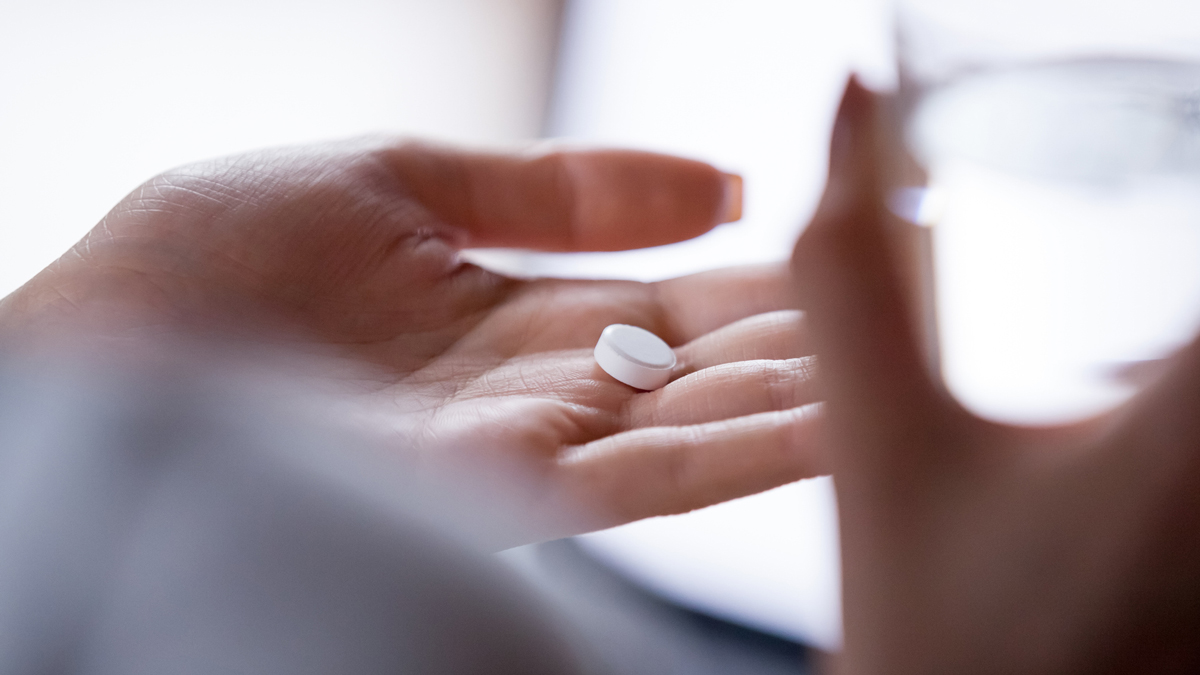Beyond the pill in an outcomes-based world

Going beyond the pill is proving to be a win/win for patients and pharma alike – because improved outcomes are better for everyone.
With growing numbers of people around the world living with long-term conditions, the pharmaceutical industry has a golden opportunity to use its expertise to truly enhance lives.
But innovative new products are only part of the equation, because even the most efficacious drugs will only work as part of a holistic programme of care that includes mental health support.
And when outcome-based contracts are on the rise, pharma has a lot to gain from helping people to stay engaged, on treatment, and living well.
Self-management based outcomes
Countless studies have shown that people who are engaged in their own management have better outcomes.
In diabetes, for example, consistent engagement in self-management, including medication adherence, is associated with better blood glucose control, fewer complications, improved quality of life, and reductions in diabetes-related death risk.
In inflammatory bowel disease, patients who are engaged in their own care tend to have fewer symptoms, fewer hospitalizations, and less need for treatment escalation.
Effective self-management also places less burden on healthcare systems, as demonstrated in a 2018 cross-sectional analysis of electronic health records. The paper found that self-management capability was associated with lower healthcare utilisation overall, as well as less wasteful use of services across both primary and secondary care.
If pharma wants its products to fulfil their life-enhancing potential, then, it needs to do everything it can to support the patients in their management journey.
Outcomes-based payments
With the emergence of outcome-based contracts, in which developers are paid according to the real-world effectiveness of their products rather than clinical trial data, patient support takes on a whole new significance.
These agreements are growing in popularity as payors seek to balance access with affordability. They often require the manufacturer to wholly or partially refund drug payments if a pre-specified threshold, such as “cure” or a reduction in mortality or morbidity, is not met.
This places an added onus on organisations to make treatment as easy as possible for the patient. After all, even the most efficacious drugs will not meet their endpoints if people are unable or unwilling to take them.
Going beyond the pill
Pharma-led patient support programmes and supplemental services are nothing new, but they have become more sophisticated in recent years.
Thanks in part to digital transformation, people can now expect to receive patient portal invitations, adherence reminders, and even disease education along with a new prescription.
There is also a growing realisation that mental health, which can negatively impact self-management, and, therefore, physical health outcomes, must also be addressed.
In diabetes, for example, 25% of patients experience depression and 40% experience anxiety. Yet we know that poor mental health is associated with poorer quality of life, poorer diabetes management, and increased healthcare costs.
"Feelings of being low in mood or worry can have a significant impact on a patient’s ability to manage their diabetes,” says Andy Blackwell, chief science and strategy officer at AI healthcare company ieso, adding that the picture is reflected across diseases and therapy areas.
Mental health
A new study by Blackwell’s company found that tailored, online cognitive behavioural therapy (CBT) can not only improve mental health outcomes, but can also boost quality of life, reduce diabetes distress, and, crucially, improve self-management.
A total of 102 people were involved in the 12-week project, which was supported by Roche Diabetes Care, and delivered by accredited therapists who had been trained to understand and manage the physical symptoms of diabetes.
“Tailored online CBT helped patients adjust emotionally to their diagnosis and also supported the overall management of their diabetes,” said an ieso spokesman.
“Patients who received the tailored therapy had reduced levels of distress about having diabetes, increased engagement in managing their condition, and improved quality of life, compared to synthetic control arms derived from real-world health service data to benchmark clinical outcomes.”
Blackwell said the results had “much wider implications” for the role of digital CBT therapy, mental health, and its impact on clinical outcomes across a variety of chronic healthcare conditions.
Going beyond physical health
Quality mental healthcare can significantly impact clinical outcomes, and associated costs, in long-term conditions, but healthcare systems can often struggle to provide access.
This makes it a perfect “beyond the pill” service for pharma. By helping people to cope with their long-term condition, mental health support can improve engagement with treatment and self-management. In turn, this drives up outcomes, helping companies to prove that their products work in clinical practice.
In short, it’s a win/win for patients and pharma alike.
About the author
 Amanda Barrell is a freelance health and medical education journalist, editor and copywriter. She has worked on projects for pharma, charities, and agencies, and has written extensively for patients, HCPs and the public.
Amanda Barrell is a freelance health and medical education journalist, editor and copywriter. She has worked on projects for pharma, charities, and agencies, and has written extensively for patients, HCPs and the public.












